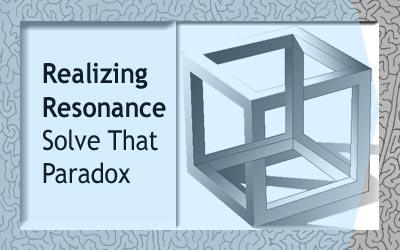
The Mind-Body Problem is a huge predicament in Philosophy, and science for that matter, and it speaks to our lack of true understanding of what consciousness is. How does my mind, an abstract, immaterial, sensing, self-aware, reflective, deliberative, phenomenal thinking entity, which I recognize as me from the inside, actually interact with my physical body and the material world? Materialism and Dualism are the two primary opposing schools of thought on this issue. Both have seemingly insurmountable difficulties making this one of my favorite paradoxes.
Materialism is the dominant view in most scientific disciplines, and possibly Philosophy as well, which is not surprising considering that science is an empirical, or observationally based, method. If the method is to have complete explanatory power in principle, then it must explain everything there is within a physical paradigm. So what is the mind? The mind is the function of the physical brain and its complex web of firing neurons. The problem with this explanation is that no matter how much data we collect about the correlations between brain states, and reported subjective awareness, it does not seem like it could ever explain why it is that we have this subjective awareness as a result of localized brain activity. This is the Hard Problem of Consciousness. Subjective phenomenal consciousness alludes explanation even if we conceive of a complete mapping of physical brains states against their inward subjective correlates, because this would still not explain anything about how in the heck phenomenal consciousness emerges from a physical brain state.
Dualism posits that the mind is composed of an immaterial substance, thus by definition is undetectable by science or direct observational methods. Most religious and spiritual people believe in a familiar form of Dualism, which is that human consciousness is our eternal soul or spirit. The body is the soul’s proxy on the material plane. The Ancient Greek Philosopher Epictetus said, “You are a little soul carrying around a corpse,” and the first modern French Philosopher René Descartes said, “I think therefore I am.” The problem with Dualism is that it cannot explain how an immaterial soul interacts with a material body, and still be something that is, in principle, not observable, whether it is connected to the body or not. How does something immaterial, which cannot have specialized parts, develop predictable diseases and deficiencies from particular and localized brain trauma and degeneration? Neural correlates to behavior are very difficult to explain under Dualism.
Can you solve that paradox?
Jared Roy Endicott


